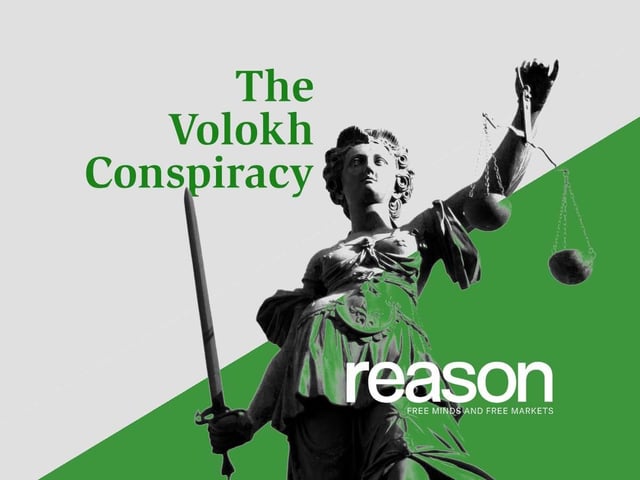
[A]s a threshold issue, the Court finds the incorporation of this specific definition of antisemitism is viewpoint discrimination. In general, including the word “antisemitism” in speech policies, perhaps in the context of protecting students from discrimination and harassment, is not inherently a First Amendment violation. The Defendants wish to view the speech policies in this vacuum, claiming the revised policies do not in fact prohibit any specific expression. But here, the speech policies do not leave “antisemitism” open to constitutional definitions and interpretations, because GA-44 mandated a specific definition. That definition, by incorporation of the IHRA’s examples, labels “calling the State of Israel a racist endeavor” and “drawing comparisons of contemporary Israeli policy to that of the Nazis” as antisemitic. And students can be punished for antisemitic speech under the revised speech policies. Plaintiffs follow this thread, reasonably understand that their intended speech is now punishable under the revised policies, and hesitate to engage in such expression. Because of this, [the] Court finds the revised policies are intertwined with GA-44 and the IHRA examples, which identify content-specific expression—like that the State of Israel is a racist endeavor or drawing comparisons between Israel and Nazis. Through the connection to these examples, the policies make that speech punishable, thereby chilling it.
Now, Tinker‘s framework does permit schools to prohibit certain expression of certain viewpoints, but only upon a showing that the expression would cause a “substantial disruption” of school actives. The school official “must be able to show that its action was caused by something more than a mere desire to avoid the discomfort and unpleasantness that always accompany an unpopular viewpoint.” Additionally, Healy v. James (1972), a First Amendment case at the university level, directs First Amendment analysis to be done “‘in light of the special characteristics of the environment’ in the particular case.” The Supreme Court in Healy found the need for this circumstance-specific inquiry was “made clear in Tinker.”
So, assessing what might be a “substantial disruption” in a university setting requires consideration of the “special characteristics of the environment.” In other words, because of the characteristics of each environment, what may be a substantial disruption in a secondary school environment may not be a substantial disruption in a university environment; what may disrupt a secondary school could even be fundamental to universities. The Supreme Court has long recognized that universities are “vital centers for the Nation’s intellectual life,” to the extent that “danger … from the chilling of individual thought and expression” “is especially real in the University setting, where the State acts against a background and tradition of thought and experiment that is at the center of our intellectual and philosophic tradition.” Ultimately, “the precedents of [the Supreme Court] leave no room for the view that … First Amendment protections should apply with less force on college campuses than in the community at large.” Healy.
Here, the characteristic of universities as an environment for vigorous debate is outcome determinative. The revised university policies chill a kind of expression that is a hallmark of university activity, and even under Tinker, the Court finds the Defendants cannot show this expression sufficiently rises to the level of a “substantial disruption” at the university level. To the contrary, this type of passionate political debate is essential at universities, where students are forming their worldview as adults. Restrictions on speech at the secondary-school level are justified in part by schools acting in loco parentis to children, but universities do not serve that same function, and even perform a disservice to their mature students by prohibiting expression that some may find disagreeable.
Defendants emphasize the spring protests, arguing those events are evidence that this speech is a substantial disruption. But the Court disagrees, finding the prohibition of this expression more akin to “a mere desire to avoid the discomfort and unpleasantness that always accompany an unpopular viewpoint.” For example, a student could calmly express she finds Israel’s policies similar to that of the Nazis while seated in a classroom with her hands folded in her lap, and it could hardly be said this expression is a per se substantial disruption. Yet under UT Austin’s revised policy, for example, her expression is defined as antisemitism and could be punished as “harassment … committed because of antisemitism.” And while some may find her speech disagreeable, offensive, or even inflammatory, it is “bedrock principle underlying the First Amendment … that the government may not prohibit the expression of an idea simply because society finds the idea itself offensive or disagreeable.”
If this viewpoint is expressed in a way that truly does rise to the level of a substantial disruption, the disruption can be addressed through content-neutral, time, manner, and place restrictions, such as those the Defendants vigorously argue they applied during the spring protests, making the prohibition on this specific expression not only unconstitutional but unnecessary. As the Supreme Court said in Healy, “[t]he college classroom with its surrounding environs is peculiarly the ‘marketplace of ideas,’ and we break no new constitutional ground in reaffirming this Nation’s dedication to safeguarding academic freedom.”
In conclusion, the Court finds that Plaintiffs are likely to succeed on their claim, even under Tinker, that the GA-44-compliant university policies impose impermissible viewpoint discrimination that chills speech in violation of the First Amendment.
I think that’s generally right. I would disagree on a few points along the way: For instance, I don’t think that the principle that “Tinker‘s framework does permit schools to prohibit certain expression of certain viewpoints” is at all applicable (given Healy) to universities: As the court later notes, Healy makes clear that “the precedents of [the Supreme Court] leave no room for the view that … First Amendment protections should apply with less force on college campuses than in the community at large”; any disruption must be addressed (as Healy points out) through “reasonable regulations with respect to the time, the place, and the manner in which student groups conduct their speech-related activities,” which refers to content-neutral and viewpoint-neutral restrictions.
I’d also say that any restriction on anti-Semitic speech, whether it uses the IHRA definition or just targets hostility to Jews as such, is viewpoint-based. Universities aren’t allowed to restrict anti-Semitic viewpoints any more than anti-Israel viewpoints. But on balance, I think the court is correct in concluding that the Texas policies violate the First Amendment.
The court, though, declines to issue the preliminary injunction that the plaintiffs sought:
Plaintiffs’ proposed order asks the Court to enjoin Defendants from:
enforcing GA-44 and any practices or policies adopted in furtherance of it, including but not limited to the creation of any rules or policies that:
- forbid students from using the phrase from the river to the sea, Palestine will be free;
- define as bigoted the typical criticisms and historical comparisons students make about foreign countries when those criticisms are made about Israel;
- single out for punishment Students for Justice in Palestine, Palestine Solidarity Committee, or any organization that is critical of Israel and supports the rights of Palestinians;
and to order that:
Defendant Taylor Eighmy is hereby preliminarily enjoined from enforcing the school’s policy forbidding students from chanting or displaying on signs the slogan from the river to the sea, Palestine will be free.
Defendant Rene Khator is hereby preliminary enjoined from enforcing its new policies that seek to comport with GA-44, including the changes made to UH Systems’ free expression policies by the Board of Regents on May 17th.
… Overall, the Court finds Plaintiffs’ requested injunction overbroad. The Court acknowledges that if Plaintiffs ultimately succeed, the Court will need to grant relief. Appropriate relief will focus on eliminating the connection between the university policies, GA-44’s definition of antisemitism, and the IHRA’s examples of antisemitism, because it is that connection that chills Plaintiffs’ speech. For example, particularly if evidence arises that the policies are being enforced in alignment with the IHRA’s examples, appropriate relief may enjoin Defendants from punishing speech under the guidance of the IHRA’s examples. The proposed injunction is not narrowly tailored to the specific definition and examples of antisemitism incorporated into the policies. For instance, UH’s revised policy does not identify, even by reference, the phrase “from the river to the sea.” And, Plaintiffs could violate valid university policies in a manner that requires them to be “single[d] out for punishment.” Because a preliminary injunction should be the exception rather than the rule, and the decision is discretionary, the Court declines to exercise its discretion to fashion its own injunction at this time and does not wish to err by entering the proposed overbroad injunction.




